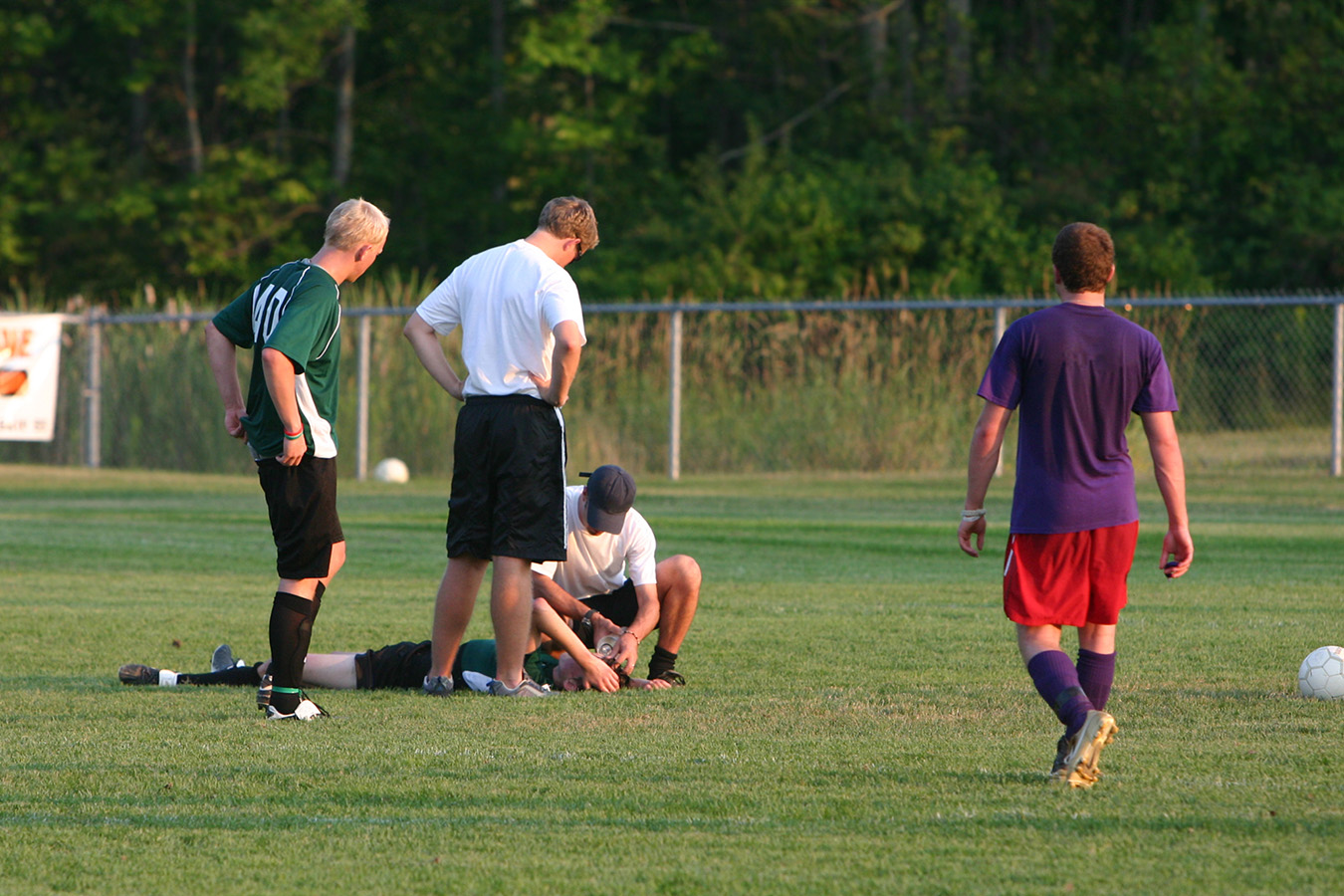Spotting and Responding to Concussions

When it comes to concussions, what once may have been ignored as a run-of-the-mill injury is now treated with the seriousness it deserves.
After all, a concussion is by definition a traumatic brain injury, says the American College of Emergency Physicians.
Athletes, along with their teammates, coaches, parents, and other loved ones, need to recognize the symptoms of a concussion, whether it’s during a sporting event or another incident. By identifying a concussion right away, you can help the individual get the medical care they need and ensure that they go through the proper steps before returning to activity.
What are the symptoms of a concussion?
“If you’re watching a soccer or hockey game and a collision occurs, you’re looking for an individual that appears dazed, confused, slow to get up, off balance, walking in the wrong direction, and symptoms of that nature,” says Gillian A. Hotz, SLP, Ph.D., director of the UHealth Concussion Program at the University of Miami Health System. “These are all telltale signs that a concussion may have occurred.”
For the athletes, concussions may manifest with symptoms such as:
- Dizziness
- Lightheadedness
- Headache
- Confusion
- Sensitivity to light or sound
- Changes in vision
- Changes in speech or movements
After the fact, the person may have a change in their sleep patterns or mood and may also seem fatigued, says the American Academy of Orthopaedic Surgeons (AAOS).
College and professional athletic events have certified athletic trainers specifically trained to recognize concussions and seek further medical attention when needed. But even average onlookers can use some of the same strategies for spot a head trauma.
In addition to looking out for the symptoms, SCAT5 (Sports Concussion Assessment Tool – 5th Edition) presents a series of questions you can ask an individual to assess their status. These are typically specific questions about the event, such as:
- Where are you right now?
- What half/period is it?
- Who scored last?
- Did your team win the last game?
These answers, along with the symptoms, can give you a clearer picture of whether the person experienced a concussion or not.
What is the treatment for concussions?
Every person who may have experienced a concussion should be seen by a medical professional – regardless of the severity of symptoms, says Dr. Hotz.
The approach to treatment typically requires a multi-disciplinary strategy that involves neurologists, psychologists, physical therapists, and other medical professionals to ensure that the person gets the comprehensive care they need. It also helps ensure that the person who experienced the concussion resumes their previous activities at the appropriate time.
“In about 80% of the cases I see, people can resume their activities within 14 days,” says Dr. Hotz. “Of course, this can vary based on the signs and symptoms, but we see our patients regularly so that we can track their progress closely.”
Wyatt Myers is a contributing writer for UMiami Health News.
Tags: concussions, Dr. Gillian Hotz, head trauma
